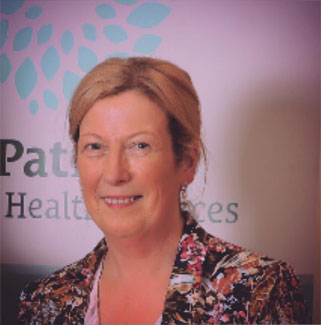Pre-Adoption
Entering into the adoption process can be frightening and some people feel they need a sense of balance and certainty. Counselling can help with the decision-making process about whether adoption is right for you as a couple or as a family. In addition, sometimes families have issues that must be resolved before the integration of a child, who may have emotional and behavioural needs that could be challenging for even the most stable family. Counselling can help you focus on your specific needs.
Post-Adoption
Adoptive parenting can be even more complex than parenting biological children can. Adoptive parents face unique challenges raising adopted children and it is crucial for adoptive parents, especially as adopted children become teenagers, to keep the lines of communication open. Adopted teens will have additional issues to face as they mature into adults. Psychotherapy and Counselling can provide help transitioning through such adoption issues.
As a psychotherapist, I have worked with many adoptive parents, supporting them on their journey through the process of assessments, pre-adoptive and post-adoptive issues. I am an adoptive parent so I can identify and support parents in building good attachment skills with their adopted child. I also work with blended families where the adopted child has been introduced into a family with existing birth children.
Issues dealt with when counselling adopted children and their parents:
-
- Loss and Grief: Even when children have a positive adoption experience, they often feel some level of separation and loss or possibly even abandonment. They may need support in working through their feelings, mourning their losses, and accepting who they are.
-
- Trust and Attachment Related Issues: Children who have experiences abuse, neglect, out-of-home care or institutionalization often have difficulty trusting and attaching to their adoptive family. They may need assistance in building these relationships.
-
- Identity Formation: “Who am I? How am I different from my parents? How am I like my birth parents?” Helping children understand who they are and become their own person.
-
- Family Dynamics and Adoption Adjustment: Adoptive parents sometimes experience loss and grief, maybe about infertility, maybe because the adoption is not going as they expected, all of which can cause a strain to a marriage and/or the family. Counselling and psychotherapy helps the individual and the family to cope and develop coping strategies that work for their particular family.
-
- Connection to the Birth Family: Some children need help working through their feelings surrounding their birth parents and why they were placed for adoption and some may need support when navigating how to search for their birth family. Counselling can alleviate a lot of anxiety around such events.
-
- Difficulties that children who were in out-of-home care before adoption experience: Maybe a child has effects of early trauma in their lives, maybe they have health issues, school issues, trans-cultural issues, etc. Counselling will assist the child and the parents in navigating through these issues.
-
- Depression and Anxiety: Many adoptive parents suffer from post-placement blues and anxiety from the money, time, effort, emotional strain and patience needed throughout the adoption journey. Counselling can help with adjustment and provide assistance with coping strategies.
-
- Stress Management: Stress can be caused by the addition of a new family member, lack of sleep, increased family responsibilities and increased financial responsibilities among many other things. A counsellor can assist the parent/couple to managing these stressful situations.
-
- Behavioural/Emotional Difficulties: Some adopted children may develop emotional and behavioural issues. The problems may or may not result from insecurities or issues related to being adopted. Availing of counselling in such situations can allow the parent to discuss their concerns and make decisions if necessary to avail of specialist help in this regard.
-
- Developmental/Learning Concerns: Delays can be caused by genetic or environmental factors (including exposure to alcohol or other drugs during pregnancy, trauma, neglect, or insecure attachment). Children learn and develop at different rates, so some children may be slightly behind their peers. With international adoptions, learning a second language or adjusting to a new culture may also create temporary delays. A counsellor can help with understanding your concerns and can refer families to additional resources if necessary.
-
- Trauma, Abuse, or Neglect: Adopted children who have experienced trauma, abuse, or neglect in their lifetime can lack trust in others and have a heightened sensitivity to certain situations. It is important for adoptive families to make the home a safe, secure and nurturing environment. A counsellor can assist with issues or concerns surrounding abuse, trauma, and neglect.
-
- Sibling Issues and Attachment: Counselling can provide support to families helping them work through issues regarding sibling acceptance and attachment with adopted children.
Nutritional, Eating and Sleep Issues
Often children who have come from foster homes or orphanages have special nutritional needs as well as issues with food. Meals are at least a three-times a day event, so the relationship your child has with food can often affect your child’s attachment with you as well as their overall physical growth and health. Many families need help with food-related issues.
Sleep is also an everyday event, and parents can often become exacerbated when their child has difficulty sleeping. We can help provide you with some practical tips as well as determine if there may be more serious issues at hand.
Post-Adoption Counselling is also available to support such issues as Older Child Issues, Adjustment to New Parenting Roles and Marital Difficulties.

